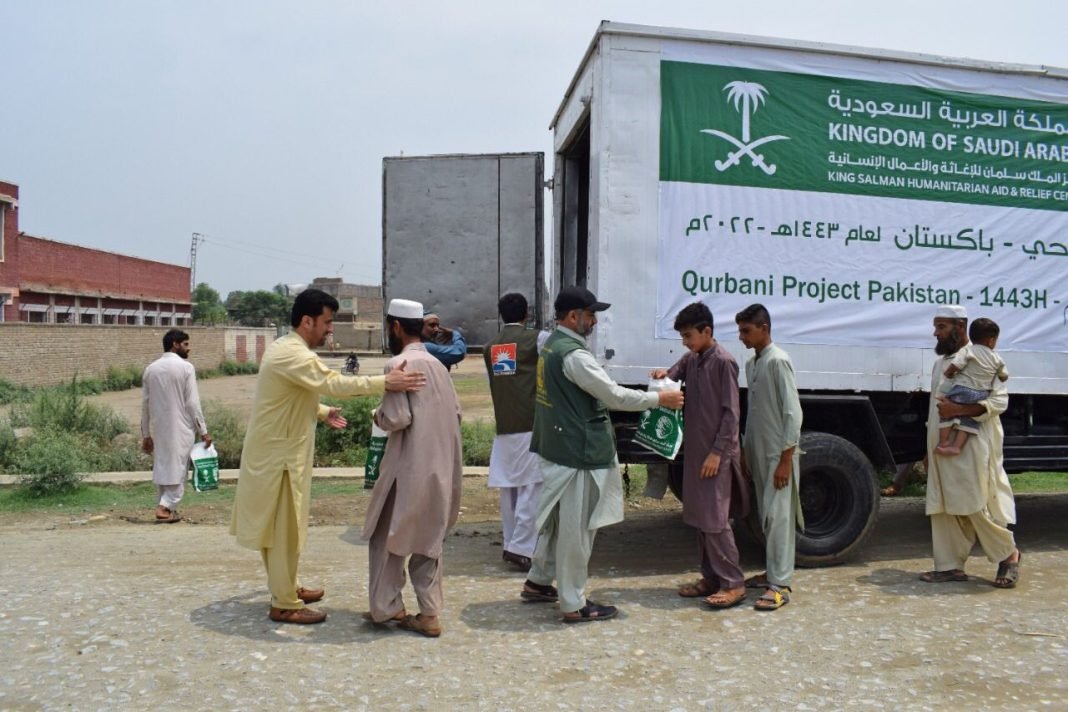Islamabad, 12 July 2022 (TDI): King Salman Humanitarian Aid and Relief Center (KS-Relief) of Saudi Arabia distributed sacrificial meat in 10 districts of Pakistan. The distribution was made on the occasion of Eid-ul-Azha.
King Salman Humanitarian Aid & Relief Centre designed the humanitarian endeavor in 2017. The program is based on creating local partnerships to assure the impact is sustainable as per SDG 17 of the UN.
This sacrificial (Qurbani) program was undertaken in joint collaboration with the National Disaster Management Authority (NDMA), local government, as well as local NGOs. Approximately 80,297 people benefited from this project.
Muslims across the world celebrated Eid-ul-Azha on the 10th of Dhu al-Hijjah, the twelfth and final month in the Islamic calendar. The sacrificial meat was distributed under the Qurbani Project 1443H in Pakistan by KS-Relief.
KS-Relief sacrificed 300 bulls and 600 goats in ten districts of Pakistan, on the occasion of Eid-ul-Adha. The objective was to benefit the deserving and affected people with the sacrificial meat on eid.
Sacrificial (Qurbani) meat was distributed in 8 districts of Khyber Pakhtunkhwa, under this program. They are Charsadda, Lakimarwat, Bajour, Mansehra, Mardan, Swabi, Chitral, and Kohistan.
Aside from that, the meat was also distributed in districts Ganche and Rondu in Gilgit Baltistan so that underprivileged people can also enjoy Eid.
Eid-ul-Azha
Eid al-Azha is the second and the bigger of the two main holidays celebrated by Muslims. The other is Eid al-Fitr. The celebration honors the willingness of Prophet Ibrahim (عليه السلام) to sacrifice his son Ismail (عليه السلام) in obedience to Allah’s command.
However, before Prophet Ibrahim (عليه السلام) could sacrifice his son, Allah provided him with a lamb to sacrifice in his son’s place due to his willingness to sacrifice his own son for Allah. Animals are ritually sacrificed on Eid-ul-Azha to commemorate this incident.
The meat of the sacrificed animal is distributed in three equal parts to be consumed by the family sacrificing it for the sake of Allah, the relatives of the family, and the poor and the needy.
I'm a detail-oriented, problem-solving, persistent multitasker. Having a magna cum laude MSc. in Strategic Studies from National Defense University, Pakistan, I believe in peaceful discourse & dialogue and have built my interest in nontraditional security threats.
I am an experienced writer with a primary focus on public policy, environmental security, nuclear strategy, and geopolitics!








